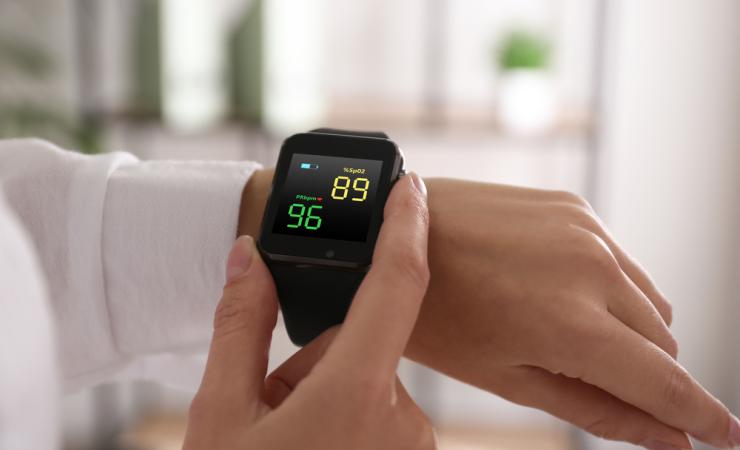DIA Europe takes place in Basel, Switzerland at the end of March, and IMI projects are well represented in the programme. The Programme Office asked the projects involved what they would be presenting at the event.
Trials@Home – making remote clinical trials a reality
Digital technologies and wearable devices mean it is now possible to assess patients remotely – while they are at home, or going about their daily lives. If used during clinical trials, they could dramatically reduce the number of times patients are expected to visit the clinic. Trials@Home is exploring the potential of digital technologies for use in ‘decentralised clinical trials’ (DCTs). At DIA Europe, the project is part of a session on shaping the future of DCTs.
‘At DIA Europe I’ll be sharing an update from the Trials@Home project’s clinical trial application experience using the new Clinical Trial Regulation system CTIS, sharing some exciting research that has been published regarding ethics committee perspectives on decentralised clinical trial (DCT) approaches and finally, spotlighting ongoing research into how DCTs could facilitate decision making by health technology assessment bodies (HTAs),’ explains Scott Askin of Novartis Pharma, who will be presenting the project. ‘These efforts are contributing to the advancement of DCTs across Europe by bringing the thoughts and views of other key stakeholders from research into the discussion.’
- Session #S0202-H: An evolving global landscape: shaping the future of decentralised clinical trials | 22 March, 15:10 – 16:20
- Read the project factsheet
Gravitate-Health zooms in on patients’ information needs
Vast amounts of information on medicines is available, but it is very hard to know what is reliable or relevant for a specific patient. Gravitate-Health is developing a digital health information tool called the Gravitate Lens (G-Lens) which zooms in on approved information on medicines and guides patients to understandable, trustworthy information that meets their needs. The project, which contributes to international initiatives like the HL7 FHIR electronic product information implementation guide, is the focus of an entire session at DIA Europe.
‘Gravitate-Health is reaching an exciting stage now - in the EU, the introduction of electronic product information (ePI) based on modern interoperability standards is offering us the opportunity to start to drive a more integrated digital health information approach,’ says Giovanna Ferrari of Pfizer, the industry lead for the project. ‘We will be sharing some of the progress we have made in demonstrating how ePI resources, along with other trusted information such as health record data, and digital tools we are developing - the federated open source platform/services with G-Lens functionality - will be able to deliver a more focused, individualised experience for the patient and other end users, as well as addressing some immediate needs such as facilitating cross border care.’
- Session #S0805-L: Gravitate-Health: Unlocking the value of the electronic product information (ePI) and more for patients in EU and beyond | 23 March, 16:50 – 18:00
- Read the project factsheet
Getting real on real world data
The GetReal Institute was born out of the IMI projects GetReal and GetReal Initiative and aims to build on their results on the use of real-world evidence (RWE) in drug development and healthcare decision-making. At DIA Europe, the institute will host a session on the subject and, together with EFPIA, will announce a collaboration to establish the RWE Shared Learning Platform by convening stakeholders later in 2023 to examine the use and acceptance of RWE by regulatory and HTA bodies.
‘Collaborative “test and learn” approaches, methodically and iteratively undertaken, can help to improve understanding of (un)successful experiences in the use and acceptance of RWE for regulatory and HTA decisions says Shahid Hanif of the GetReal Institute. ‘A multi-stakeholder shared learning platform can be a key component of a broader “test and learn” environment in Europe. By proposing, conducting, and assessing RWE studies and then communicating and incorporating learnings from the experience, research sponsors and decision-makers can reduce uncertainties about using RWE to better understand medicine and vaccine effectiveness, safety, and value.’
- Session #S0904-L: How can a multi-stakeholder shared learning platform improve understanding in the use and acceptance of RWE? | 23 March, 16:50 – 18:00
- Read the GetReal and GetReal Initiative factsheets
EHDEN highlights importance of health data
The goal of EHDEN is to make the large-scale analysis of health data in Europe a reality. It has created an open science network of 187 data partners in 29 countries, and is mapping ~850 million health records to the OMOP common data model. It has also launched a data partner catalogue and offers training opportunities via the EHDEN Academy. It is participating in a session on the use of real world data in safety signal assessments.
‘Europe is an ocean of data, but has been a desert for analysis,’ says Nigel Hughes of Janssen Research and Development. ‘We are already initiating studies with multiple industry partners, as well as continuing open science, community studies, via the EHDEN start up, and look forward to supporting this more expansively as we develop.’
- Session #S0604-L: Safety signal assessment and real world data: the emergent innovations & shift | 24 March, 9:00 – 10:10
- Read the project factsheet
Update of 21 March 2023
In addition to the sessions listed above, IMI projects and IHI staff will also give presentations in the following sessions:
- There will be a presentation on EU-PEARL in session #S0203-L: Enhancing patient-focus in cancer drug development: patient-preferences and multistate models on 23 March at 13:30 - 14:40.
- IHI Senior Scientific Project Manager Nathalie Seigneuret will be a panellist in session #S0406-L: Platforms for scientific dialogue of developers and regulators – are there any missing elements? on 24 March at 9:00 - 10:10.
